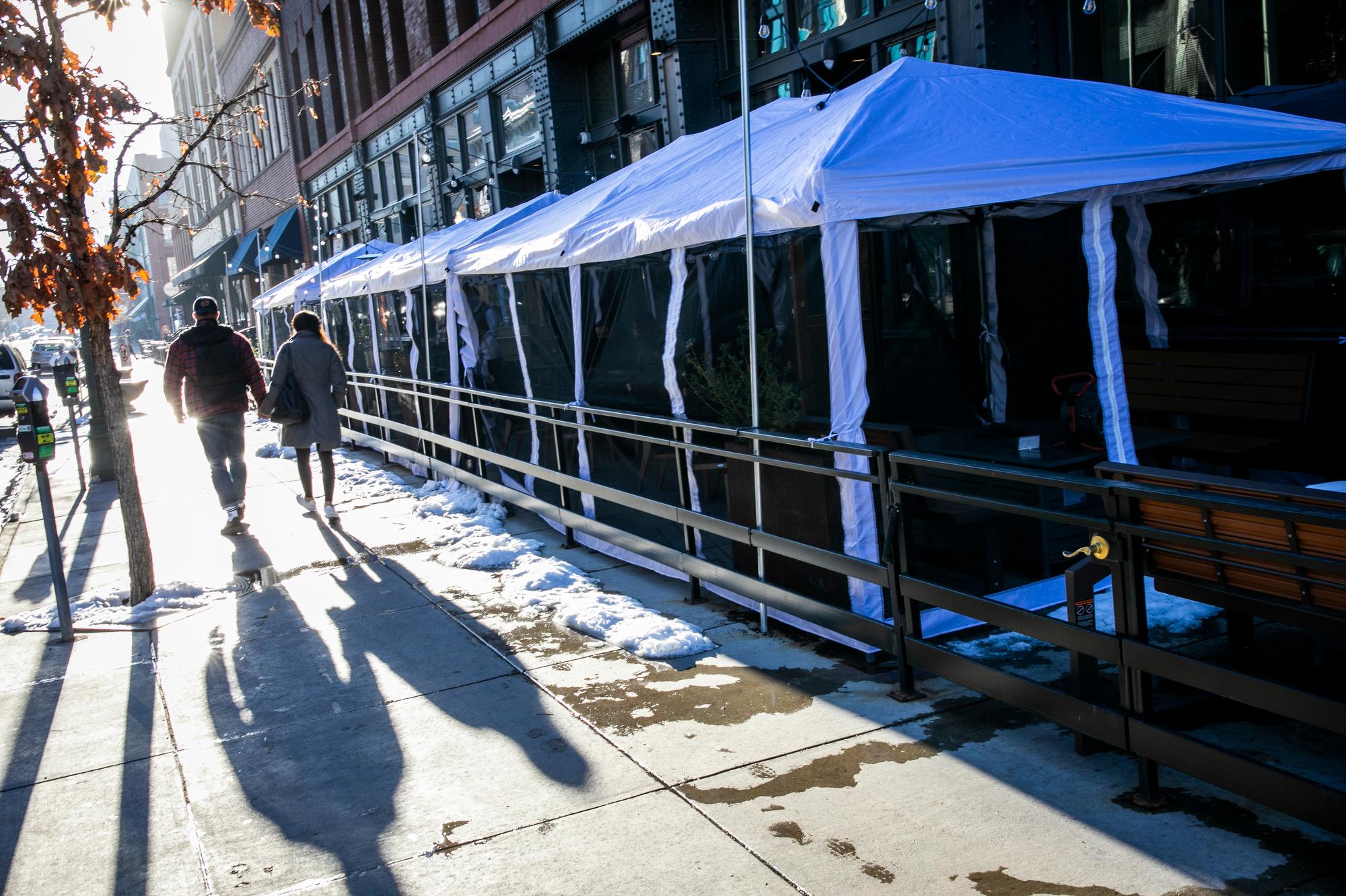
Low-wage workers in Colorado continue to bear the brunt of the pandemic’s economic fallout even as high-wage jobs bounce back, according to a report from the Colorado Center on Law and Policy.
The state has gained back about half of 300,000 jobs lost when stay-at-home orders were first imposed in March and April, the report found. High-wage jobs are almost fully recovered to the levels of January 2020, while low-wage jobs are still down 17.6 percent.
Employment in the accommodation and food sector — typically among the lowest-paid jobs in the state — declined 40 percent from February to November, the most of any sector, the report found. By contrast, employment in finance and insurance has gained 2.6 percent.
A recovery that took hold when businesses reopened in May and June has stalled out as COVID-19 cases surge. Preliminary estimates show that Colorado lost nearly 7,000 jobs in November, the report found.
The current downturn is unprecedented in its depth and pace. During the previous two recessions, jobs were lost and regained over a period of years, not months, according to the report. Historically, it takes between 50 and 60 months to fully recover jobs lost during a recession, the report found.
The data suggests that even when all COVID-19 restrictions are lifted, the damage will persist.
“It will still take a number of months, if not years, to fully recover the jobs that were lost,” wrote Charlie Brennan and Lauren Contorno, co-authors of the report.








